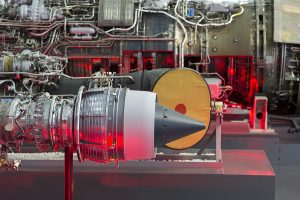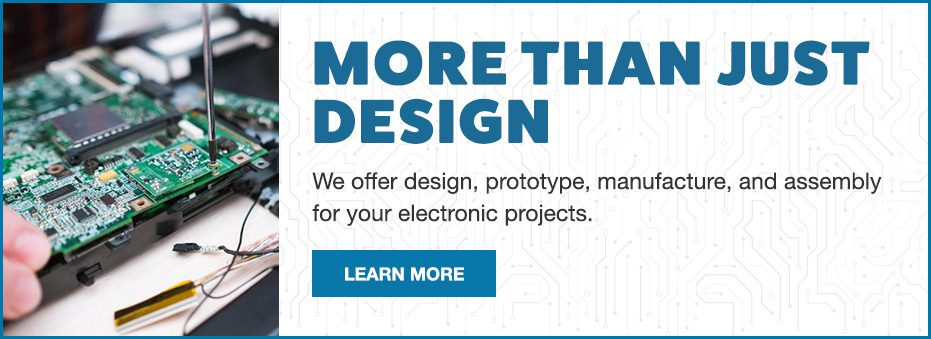Comprehensive Testing Requirements for Aerospace PCBs
There are several industries with stringent standards and regulations; and it should come as no surprise that the aerospace industry is one of them. When the stakes are high, and failure can be catastrophic, any equipment component must undergo rigorous testing to make sure that every electronic component can withstand the harsh conditions of aerospace environments. Reliability is paramount in aerospace engineering, and testing is the best way to prove that the electronic components can hold up. When looking for an electronic contract manufacturer for aerospace PCBs, it’s important to look at how any potential partner handles testing and quality control to meet those standards and regulations.
AS9100 and the Required Standards for Aerospace PCBs
AS9100 is considered the absolute minimum for meeting the required standards in PCB manufacturing for the aerospace industry. The AS9100 certification builds on the international requirements of the ISO 9000 certification. It provides an extra layer of protection with increased audits and additional quality and safety requirements specifically tailored to the aerospace industry. The requirements for AS9100 certification include measures in operations risk management, product safety, critical items, configuration requirements, counterfeit parts mitigation, special requirements, and delivery requirements.
Most aerospace facilities insist that not only do all developers and manufacturers adhere to AS9100 standards, but all suppliers comply with or achieve the certification themselves. This will not only ensure quality products but will also protect all of those involved in aerospace manufacturing.
General Testing Requirements for Civil Aerospace
All PCBs undergo thorough testing before delivery to check functionality, reliability, and safety, but most aerospace PCBs will undergo additional testing requirements.
Aerospace electronics are exposed to harsh environments and must function reliably in extreme conditions. Any system failure can have catastrophic consequences, so the testing requirements reflect the increased importance. Aerospace PCBs will go through testing for operation in extreme temperatures, vibration, and shock resistance, signal integrity, and size and weight constraints. These tests include thermal cycling tests, vibration and shock tests, and meticulous inspection processes for quality control with thorough documentation. All test results will be thoroughly documented, and appropriate rectification procedures will be implemented if any defects are identified.
Design Specifications for Aerospace PCBs
Many of the requirements for aerospace PCBs are addressed during the design phase, as potential issues can be more easily remedied early in the process. The project’s design phase is also where materials can be selected, and any concerns with supply chain management can be addressed. As size and weight are significant factors in aerospace electronics to improve efficiency and reduce environmental impact, the materials used to design aerospace PCBs are a major consideration. Therefore, many PCBs will undergo a prototyping phase where the design and functionality can be tested before they are finalized.
Durability, Reliability, and Performance
Many conditions can push a PCB to the limit. Fluctuating temperatures, vibration, and moisture can all impact PCB performance, durability, and reliability. In an aerospace environment, all of these conditions will be present. Testing must replicate these environments to make sure any PCB designed and manufactured for use in the aerospace industry will hold up. Any fault can lead to catastrophic failure, which raises the stakes of the testing that needs to be done. When a PCB is designed for use in a harsh environment, reinforcements are often used to protect the PCB from shock, vibration, and stress. Coatings and encapsulation can be added if necessary after testing.
Meeting Regulatory Standards and Requirements
In aerospace engineering, electronic components must endure extreme conditions while remaining fully operational. The regulatory standards and specific requirements a PCB needs to meet to be integrated into an aerospace system are stringent. The best way to guarantee these standards are met is through comprehensive testing requirements that will measure every component’s functionality, durability, and reliability in various conditions. When you meet with an electronic contract manufacturer, they should be able to walk you through their testing process at every stage to make sure that the final PCB will meet all regulatory requirements.
Finding an ECM Who Complies
When creating electronic components for aerospace technology, it is essential to partner with an electronic contract manufacturer who understands the comprehensive testing requirements and has a process in place for quality control. This usually means finding an ECM with certifications that can verify their commitment to thorough testing and quality control. Electronic contract manufacturers are not required to hold certifications, but if you want an aerospace PCB, you must make sure your ECM holds the right certifications for compliance. When you choose an ECM that has obtained the proper certifications, you will know that you have selected a partner who chooses high-quality suppliers, uses high-quality parts, has exceptional organizational efficiency, and understands the regulatory requirements of the aerospace industry. Obtaining and maintaining these certifications shows a commitment to excellence.
When you partner with an ECM that focuses on thorough testing throughout the development and manufacturing process, you can be assured that you will not have issues with performance or meeting industry standards.
With AS9100 certification from NSF-ISR and a team of skilled on-site engineers, Levison Enterprises offers the experience you need in an aerospace electronic contract manufacturing partner. Our extensive industry knowledge coupled with our innovative design support can help you bring a high-quality, dependable device to market. Connect with us today to see how we can help drive your project to market faster.
Start Your Quote Now!